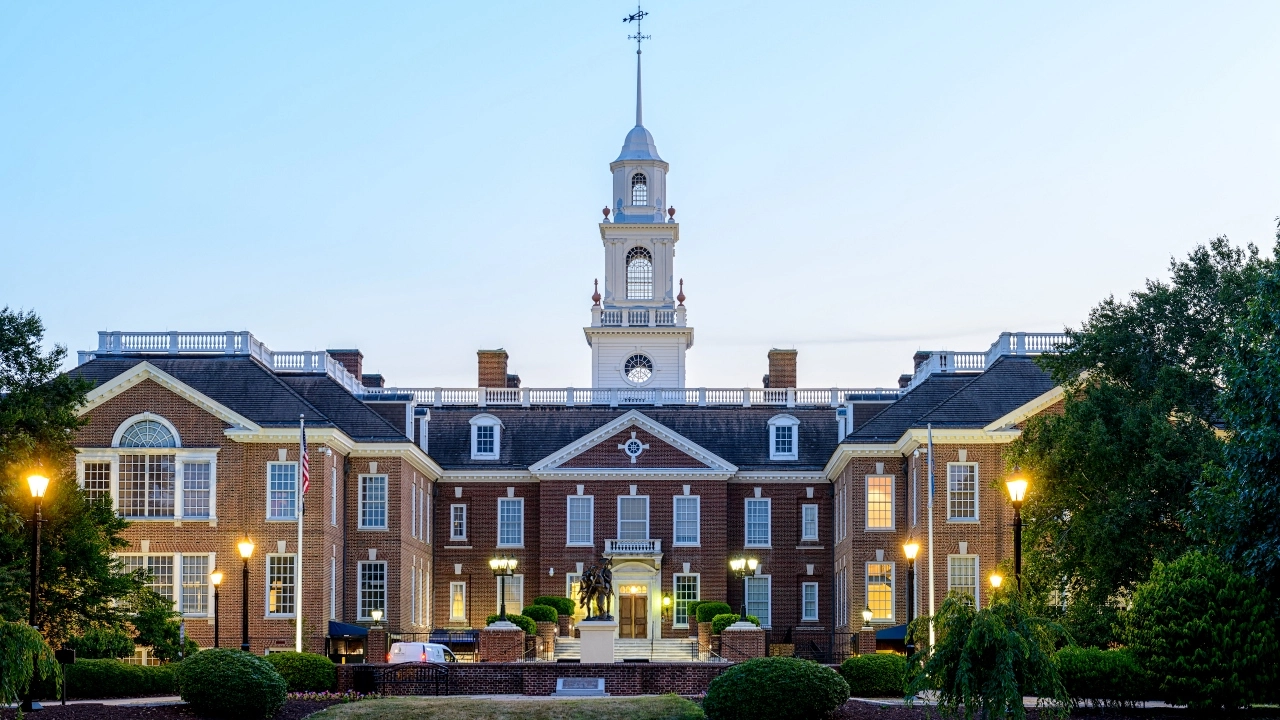Delaware lawmakers now have the unique distinction of voting twice to legalize adult-use marijuana.
Legislation to legalize recreational cannabis and set up regulations for its cultivation and sale passed the Delaware state Senate on Tuesday for the second consecutive calendar year.
That vote lays the groundwork for another potential clash later this year with Democratic Gov. John Carney.
Carney became the first Democratic governor to halt legalization passed by a state legislature when he vetoed a similar package in May 2022.
However, unlike last year, both marijuana bills approved by the state Senate on Tuesday passed with veto-proof supermajorities:
- House Bill 1 legalizes up to an ounce of marijuana for adults 21 and older.
- HB2 establishes a state commission to oversee an adult-use industry and sets state cannabis taxes at what one lawmaker claimed are the lowest in the United States.
HB 1 passed 16-4 with one lawmaker absent; HB 2 passed 15-5 with one absence.
All five Republicans present for Tuesday’s vote voted against HB2.
Both bills also passed the state House by veto-proof majorities earlier this month.
Unclear what governor will do
A Carney spokesperson declined to say whether the governor would veto legalization again.
“The Governor continues to have strong concerns about the unintended consequences of legalizing marijuana for recreational use in our state, especially about the impacts on our young people and highway safety,” said Emily Hershman, Carney’s communications director.
“He knows others have honest disagreements on this issue.
“But we don’t have anything new to share today about how the Governor will act on HB 1 and HB 2 if they reach his desk.”
It also remains to be seen whether state lawmakers will defy Carney and overturn any potential veto.
Where marijuana is legal in the United States
Legalization advocacy organizations welcomed Tuesday’s vote and noted Delaware would be the 22nd state to legalize adult-use cannabis should the bills become law.
“It’s encouraging to see the legislature advance these bills with veto-proof majorities,” said Olivia Naugle, a senior policy analyst at the Marijuana Policy Project, which lobbied in favor of both bills.
“We hope Gov. Carney will heed the will of the people and allow Delaware to become the 22nd state to legalize cannabis,.
“Any further delay to cannabis legalization would be a detriment to the state.”
Debate ahead of the vote Tuesday followed a familiar pattern, with jobs and tax revenue on one side pitted against questions of morality and public safety on the other.
State Sen. Trey Paradee, one of the bill’s sponsors, said the legislation will “create a new industry with good paying jobs while striking a blow against an illegal marijuana industry” populated by “gangs and cartels” that sell marijuana “of dubious quality.”
Delaware's 15% excise tax for adult-use marijuana would be the lowest in the country, he noted.
And, though the legislation does call for license caps once the state begins issuing permits in summer 2024, qualified social equity applicants are guaranteed a significant chunk of the market.
Of the 30 retail licenses that must be issued within 19 months of the bills becoming law, 15 are reserved for social equity applicants.
And, of the 30 cultivation permits for a grow of more than 2,500 square feet indoor or greater than 1 acre outdoor, 10 are for social equity applicants.
Legalization foes weigh in
Opponents referenced gateway theory, “drugged driving” on state highways and the ongoing conflict between federal and state law.
“There’s going to be a lot of harm to the state of Delaware if this passes,” said Sen. Bryant Richardson, one of the chamber’s six Republicans.
“The opportunity for youth to live a life that’s drug free is more important than any dollar amount.”
“I don’t care how you describe it, what we do here today is illegal,” said Republican Sen. Eric Buckson, referring to the conflict between federal and state law.
“Saying that 22 other states have already done it makes it okay isn’t. Two wrongs don’t make a right here.”
Chris Roberts can be reached at chris.roberts@mjbizdaily.com.





